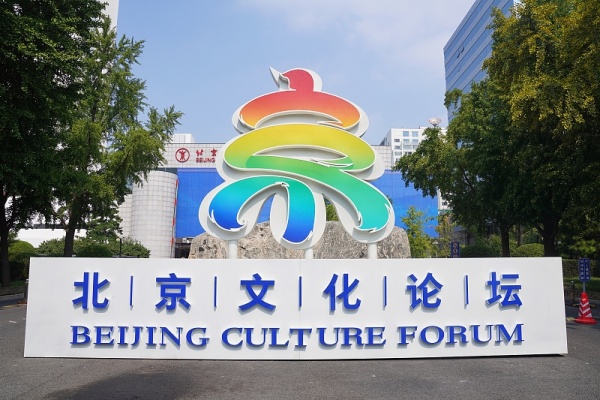
- Home
- Media Center
-
Events
- Wuzhen Summit
- Regional Forums
- Practice Cases of Jointly Building a Community with a Shared Future in Cyberspace
- World Internet Conference Awards for Pioneering Science and Technology
- The Light of Internet Expo
- Straight to Wuzhen Competition
- Global Youth Leadership Program
- WIC Distinguished Contribution Award
- Membership
- Research & Cooperation
- Digital Academy
-
Reports
- Collection of cases on Jointly Building a Community with a Shared Future in Cyberspace
- Collection of Shortlisted Achievements of World Internet Conference Awards for Pioneering Science and Technology
- Reports on Artificial Intelligence
- Reports on Cross—Border E—Commerce
- Reports on Data
- Outcomes of Think Tank Cooperation Program
- Series on Sovereignty in Cyberspace Theory and Practice
- Other Achievements
- About WIC
- 中文 | EN

Digital technologies fuel new quality productive forces in cultural sector

Beijing Culture Forum attracts more than 800 domestic and international guests from various fields. [Photo/VCG]
BEIJING - Amid the Tang tri-colored potteries, tiny figurines came alive and danced merrily. After an unexpected foray into live streaming at a bustling bazaar, they returned to their slumber as inanimate objects and images on the computer screen.
These scenes of a short video blending virtual backdrops with live performances demonstrate the transformative impact of digital technologies on dance. The technologies breathe new vitality into ancient cultural relics and forge a closer connection between ancient culture and present-day audiences.
New digital cultural forms involving live streaming, esports, and digital cultural relics are emerging. Digital technologies are reshaping the way culture is produced, shared and experienced, revving up new quality productive forces in the cultural sector.
At the recently concluded 2024 Beijing Culture Forum, participants held in-depth discussions on digital and intelligent technologies reshaping the cultural industry and explored pathways for the high-quality development of the cultural industry with digitalization.
Examples of integration of digital technologies and culture showcased at the forum raised more expectations for the transformative role digitalization plays in the cultural industry.
The video game blockbuster "Black Myth: Wukong", presenting enigmatic Eastern mythology, propelled ancient Chinese architecture into the spotlight. Baidu's Ernie Bot after being trained with ancient local records and genealogical data enables overseas Chinese to trace family roots more efficiently.
"Digital technology expanded new frontiers, making cultural exchanges more vibrant" is one of the features of China's cultural exchanges with the world in 2023, according to the Report on China's Cultural Exchanges with the World (2023) presented at the forum.
"Digital technologies will propel comprehensive innovation across content, technologies, modes and scenarios, creating unprecedented opportunities for cultural exchanges," said Du Zhanyuan, president of China International Communications Group.
New technologies represented by generative AI have great potential to be unlocked in multiple cultural scenarios, diversify cultural forms and revolutionize the cultural industry.
As of September, China has witnessed over 190 registered and available generative AI models serving more than 600 million users, according to data released at the forum. Among these, Beijing unveiled 82 models, demonstrating strong growth, diverse participation and extensive application.
Boasting abundant cultural and technological innovation resources, Beijing is dedicated to nurturing new forms of culture characterized by digital and intelligent technologies. The city is home to over 3,000 high-tech cultural enterprises, constituting one-fifth of the national total.
In terms of applications of digital technologies in cultural inheritance and protection, Beijing rolled out a platform for cultural heritage monitoring and protection and digital interactive exhibitions, facilitating the inscription of Beijing Central Axis on the UNESCO World Heritage List.
"Technology companies' innovations across diverse scenarios are enhancing the safeguarding and utilization of cultural heritage, spurring the emergence of new forms and industry clusters and stimulating economic growth," said He Yan, president of ICOMOS CHINA Scientific Committee of Cultural Heritage Conservation by Digitalization.

The World Internet Conference (WIC) was established as an international organization on July 12, 2022, headquartered in Beijing, China. It was jointly initiated by Global System for Mobile Communication Association (GSMA), National Computer Network Emergency Response Technical Team/Coordination Center of China (CNCERT), China Internet Network Information Center (CNNIC), Alibaba Group, Tencent, and Zhijiang Lab.





